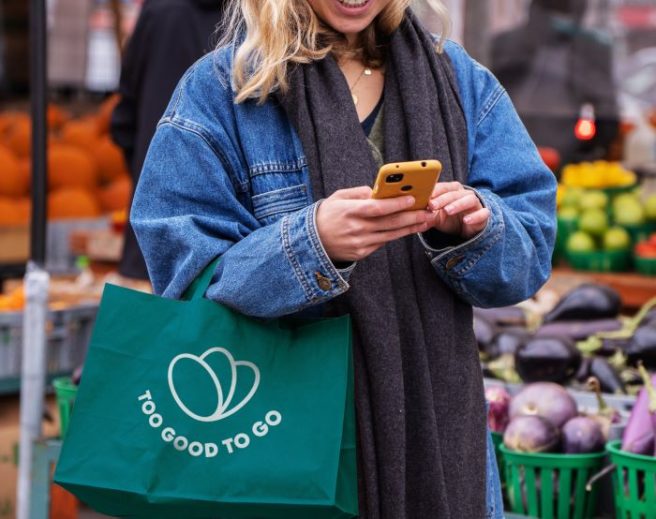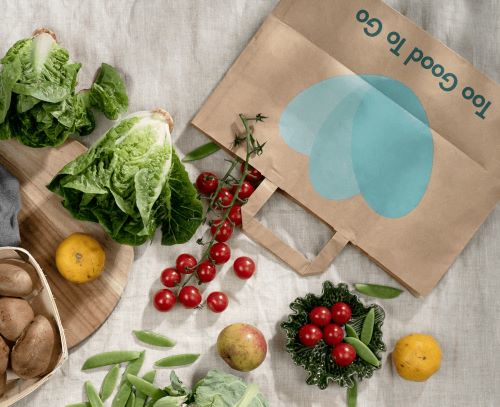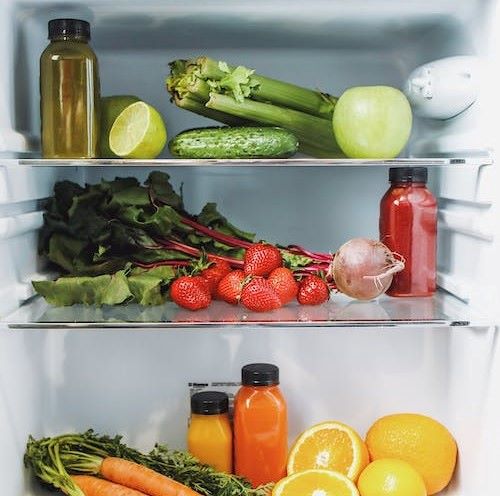
‘Too Good To Go’ settles the age-old fridge vs. cupboard kitchen debate
When it comes to food storage, choosing the fridge vs cupboard is an age-old debate that continues to divide kitchens across the country. There have long been debates between friends, siblings, partners, and colleagues over the topic that is dubbed ‘Store Wars’.
Too Good To Go, the social impact company responsible for the world's largest food waste app, with over 400,000 registered users in Ireland, is here to address common food waste issues and provide solutions. In the 20 months since its launch here, this innovative app has allowed users to save unsold food from restaurants and retailers at a reduced cost, preventing it from going to waste. Notably, more than 1,600 Irish businesses including SuperValu, Fresh, Costa, Starbucks, Cafe Nero and Sprout are already part of the initiative.

According to new research commissioned by Too Good To Go, people in Ireland and the UK are divided on where you should store different items, particularly when it comes to chocolate, eggs and ketchup. The research conducted found that over half of people are wrongly storing ketchup in the kitchen cupboard and almost a third are incorrectly storing chocolate in the fridge. The research also found that over a third of people are storing their eggs in the cupboard, impacting freshness and shelf life.
But it’s not just these three items causing kitchen calamities as almost 1 in 10 people admit to storing olive oil in the fridge, a whopping 1 in 10 are storing cucumbers and strawberries in the cupboard and almost 1 in 5 people are storing potatoes and bread in the fridge! Not only are we storing food wrong but worryingly, 2 in 5 people are defrosting meat at room temperature and 21% of people believe food should never be eaten past its best before date which is also causing food to go to waste.
As well as looking at what items are being stored and how, Too Good To Go also conducted research on where people are sourcing information on how to store food at home with findings suggesting that storage habits are being passed through generations as people look to their families most (59%) for guidance, which is far more common than looking to government advice (13%) and even product packaging (46%).

These common misconceptions on how to store food at home mean that a staggering 65% of people are throwing away up to six edible food items per week and with food waste accounting for 10% of all greenhouse gas emissions it is a worrying figure when looking at the environmental impact of food waste.
As the winter months approach, the issue only gets worse. Over a third of people do not change how they store their food in the summer months vs the cooler months and nearly 1 in 5 people would like more information on the best ways to store their food in the winter months. It’s clear an education is needed as half (49%) of Gen Z and millennials claim they do not know how to adapt food storage habits when the weather changes.
Top Tips:
Eggs – Fridge: Eggs should be stored in a cool, dry place – ideally in the fridge. Keeping the eggs in the cold will make them last longer, but make sure you keep them near the back of your fridge as constant changes in temperature can make them go off more quickly.
Chocolate – Cupboard: The fridge tends to increase humidity which is not good for chocolate. So, the best place to keep your chocolate is in any cool, dark place – making a kitchen cupboard the ideal spot.
Ketchup – Fridge: Once opened, tomato ketchup should be kept in the fridge to maintain its freshness and make sure it tastes as great as possible! Don’t worry if you are on the go though, the acidity of the condiment preserves it whilst it’s out of the fridge.
Veggies – Fridge: Certain vegetables like cucumber, celery or carrots can go soft and lose their crunch if left for a while. To avoid this, simply chop into sticks and place in a jar of cold water in your fridge (make sure it’s airtight!). Just remember to change the water every day or so to maintain the freshness. Top tip: this hack also works to revive vegetables that have already softened!
Bananas – Fridge / Fruit Bowl: It may be convenient, but by storing your bananas all together in one bunch, each banana will ripen at the same time, meaning you've either got to eat all your bananas at once or risk throwing away the rotten ones. Here's a solution: Break up the bunch. Keep some in the fruit bowl on the counter to ripen and store other bananas in the fridge to delay the ripening process.
Sliced Bread – Fridge: If you save sliced bread, remember to store it in the fridge when you get home. This way it will last much longer, extending its expiration date. Always remember to use your senses before consuming it – look, smell, taste!
Olive Oil – Cupboard: Make sure olive oil is stored in a dark, dry, and cool cupboard out of direct sunlight and heat. Storing the oil in the fridge could mean that it takes on the flavours of surrounding foods – the last thing you want is a cheesy oil!
Potatoes – Cupboard: Potatoes should be stored in a cool, dark place (often in a paper bag works well) to preserve freshness and prevent them turning green. Onions and potatoes often go hand in hand in recipes, but they’re also often mistakenly stored together. Onions can make root vegetables go bad quickly, so make sure to keep them separate.
Fresh Bread – Cupboard: Cloth bags are the best option for storing bread. In this way it will maintain its properties better. As bread loses its moisture, it becomes drier but , if you add a piece of unpeeled potato inside the bag, it will help your bread last longer.
Visit www.toogoodtogo.com for more information.





